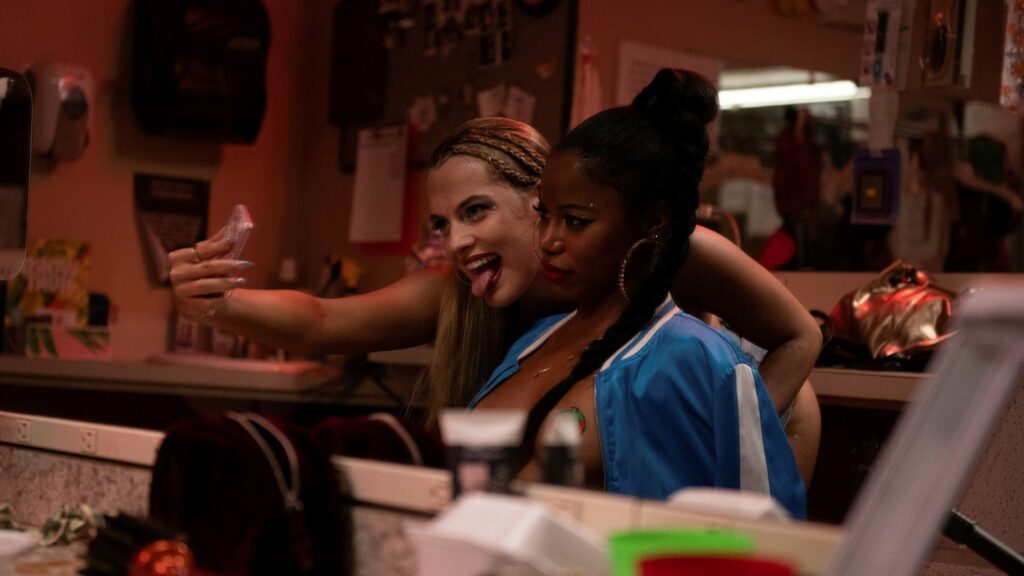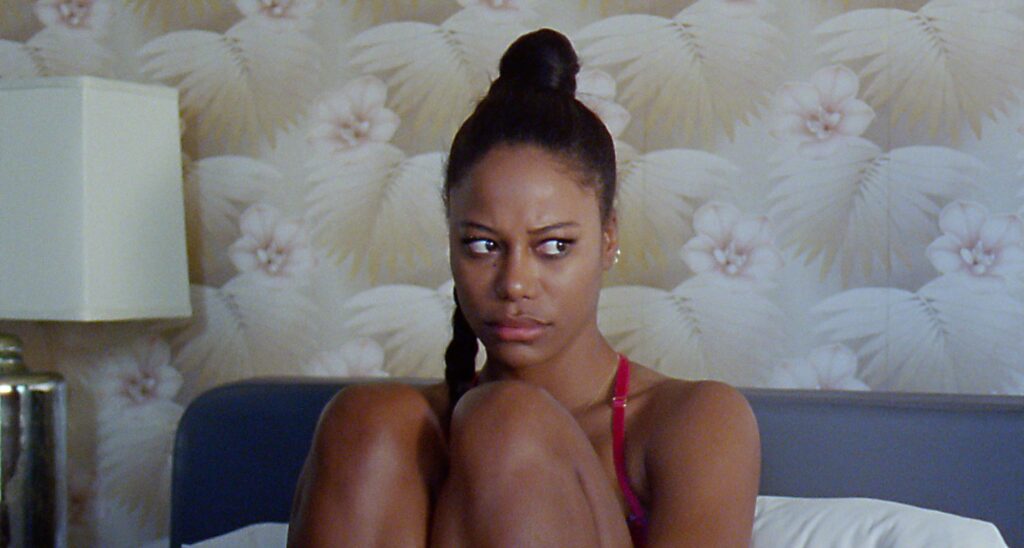Now considered a masterclass in storytelling for the digital age, A’Ziah “Zola” King achieved minor celebrity status in 2015 with her viral, 148-part Twitter thread. Recounting a near-unbelievable Floridian odyssey filled with guns, sex, and crime, the tale opened with a seductive (and endlessly quotable) offer: “Y’all wanna hear a story about why me & this bitch here fell out? It’s kind of long but full of suspense.” The internet was hooked and in it for the ride.

Years later, the part-time dancer from Detroit’s story is adapted to the big screen by writer-director Janicza Bravo, with a script co-written by playwright Jeremy O. Harris. While working as a waitress, Zola (relative newcomer Taylour Paige) meets Stefani (named Jessica in the original thread, played here by Riley Keough) and strikes up an immediate kindship, “vibing over our hoeism or whatever”.
After a whirlwind text exchange featuring a generous spread of fruit and vegetable emojis, Stefani persuades Zola that there’s big money to be gained pole-dancing for a weekend in Tampa. Though they have just met, Zola nonetheless agrees to the adventure, on which they are accompanied by Stefani’s beta boyfriend Derek (Succession’s Nicholas Braun) and her roommate (read: pimp), a mysterious and smoothly dangerous man referred to as ‘X’ (an ever-excellent Colman Domingo). What follows is a riveting case study in Murphy’s Law.

Zola plays with its vantage points; we switch perspectives between the filmmaker’s ‘objective’ camera and witnessing events through a phone lens. The digital footage contrasts the cinematography’s gorgeous, analogous grain, pitting pastels and soft lighting against too-bright daylight and the headache-inducing cacophony of notification ‘dings’. It’s a marriage well suited to a film considered the first “Twitter movie”.
Bravo effectively brings the source material to life as a darkly comic series of disjoined snapshots, and even recreates some of the thread’s erratic pacing. But what’s fascinating about Zola is that it flies in the face of traditional storytelling: there is no narrative arc, character development, or three-act structure to speak of.
The focus is on the ways in which Zola observes, interprets, and edits the story we see unfold. She remains subdued, mostly peripheral to the action, reacting to what is going on rather than driving the action. Paige excels in the role, walking the shaky line between intentional self-effacement and narrative oblivion with apparent ease.

Zola’s character is mostly silent but directs her commentary to the audience through voice-over, quips drawn from the tweets that serve as punctuation to an otherwise unstructured relay of events. The viewer knows her account isn’t the full story – the film even experiments with a Rashomon-inspired switch in point-of-view – but it simply does not matter. What matters is Zola’s relationship to the story. She is the one recounting what happened over that weekend, so what difference does it make what “really happened”?
Zola is an offbeat film that clearly aims to fascinate and frustrate its viewer in equal measures, and a pitch-perfect study of the ways in which people today repackage their lives into bite-sized digital content.
Zola releases in UK cinemas on August 6th.
